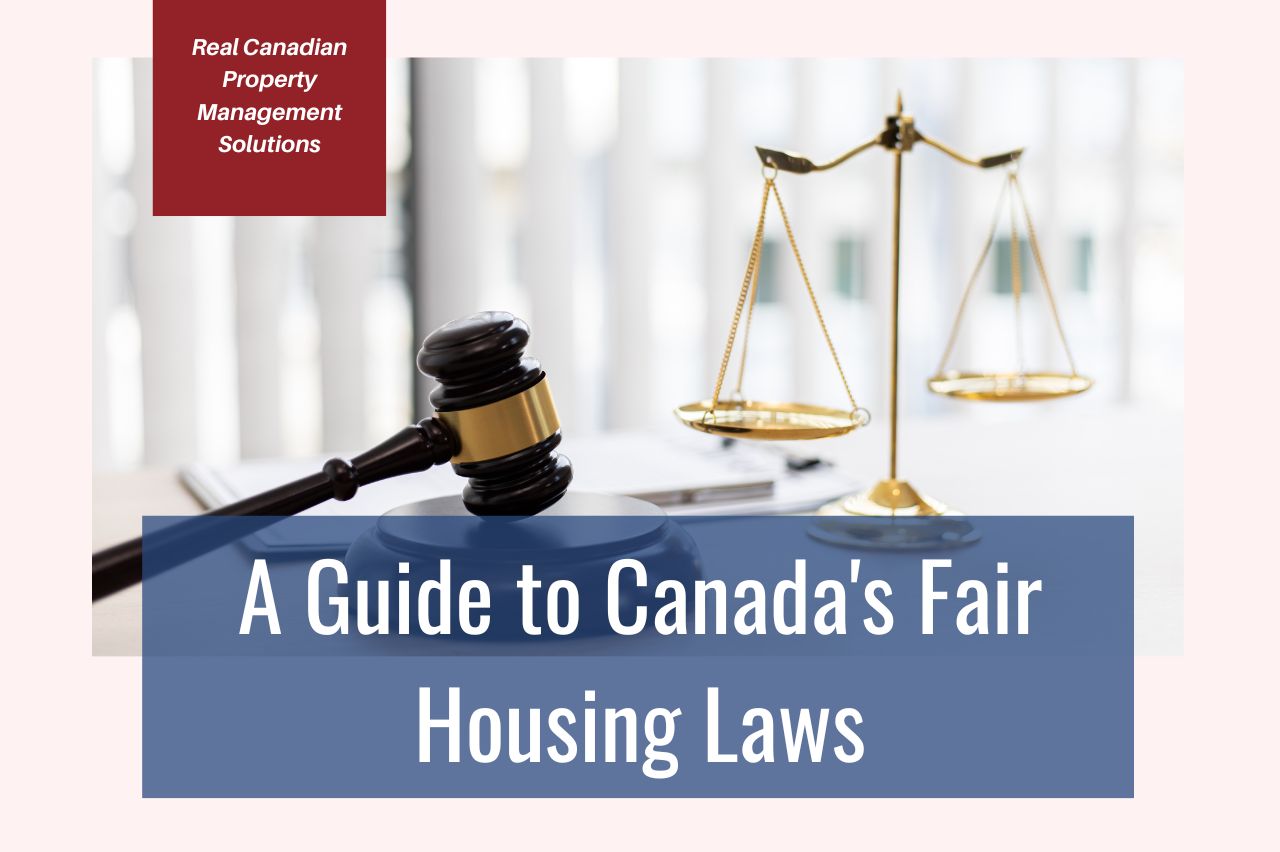
Canada is known for its inclusive society, which extends to the housing market. To guarantee that your tenant screening process is fair and equitable, it’s critical that you understand and follow Canada’s fair housing regulations.
Fair housing laws exist to protect tenants’ rights and to prevent discrimination based on a variety of protected characteristics. Real Canadian Property Management Solutions put together this detailed guide, so you can go over what you can and cannot do when making decisions involving tenants.
Understanding Fair Housing Regulations
Fair housing legislation in Canada is intended to prevent discrimination based on specific traits. It’s critical to understand these protected traits in order to guarantee that your tenant screening process is impartial and legal. Canadian law protects the following characteristics:
- Place of Origin
- Citizenship
- Race, Ethnicity, and National Origin
- Ancestry, Including Aboriginal Descent
- Religion
- Gender
- Family Status
- Disability
- Sexual Orientation
- Age
- Marital Status
- Receipt of Public Assistance
- Being a Friend or Relative of Someone with Any of the Above Traits
What You Can and Cannot Consider
The following is what you are able to and unable to take into consideration when making a tenant decision as a landlord in Canada:
Rental History
You can take into account a tenant’s rental history, including previous rental references if it speaks to their level of responsibility. For example, if a potential renter has a track record of paying rent on time and maintaining the property well, this is useful information.

Credit References and/or Credit Checks
Potential renters have the ability to obtain credit recommendations and have credit checks performed on them. You must, however, apply this rule to all applicants and refrain from discriminating on the basis of protected characteristics. You are evaluating financial responsibilities rather than personal characteristics.
Income Information
You might ask for financial details to make sure the tenant can pay the rent. However, income restrictions should be applied uniformly to all candidates and should not be used as a cover for discrimination. Focus on the renter’s financial reliability rather than on other attributes.
Guarantors
You can accept a guarantor if a potential renter does not fulfill your income or credit standards. A guarantor is a third person who promises to be financially liable for the rent if the renter fails to pay. You can request a guarantor to sign the lease, but only if the conditions are the same for all occupants.
Accommodating Tenants
You are required to make reasonable accommodations for renters with disabilities under Canada’s fair housing rules. This implies you may need to make modifications to your rental home or rules to ensure differently abled tenants have equal access.
Active Tenant Relationships
Once you have a tenant, it’s critical that you continue to follow fair housing rules. This includes treating all renters fairly, responding quickly to maintenance concerns, and not being involved in any discriminatory actions during the lease.
Proactive Actions You Can Take
Here are some proactive measures you may take to ensure that you adhere to Canada’s fair housing rules and to foster an equal rental atmosphere:
- Written Rental Requirements: Create clear written rental requirements that are consistently applied to all applicants. This document should detail the income and credit check criteria, as well as any other pertinent factors.
- Training: To avoid unintended infractions, familiarize yourself with landlord-tenant rights and regulations. Consider attending classes or seminars on equitable housing.
- Record-Keeping: Keep meticulous records of your tenant selection process, including applications, referrals, and, correspondence. This can be used to demonstrate your equitable and impartial processes.
- Review Policies: Review your rental standards and criteria on a regular basis to verify they are in accordance with current fair housing legislation.
- Partner with a Property Management Firm: If you have specific questions or concerns about fair housing legislation, it’s best to consult with a real estate and housing law expert or partner with a reputable property management company.
What You Can & Cannot Ask Prospective Tenants Legally
When talking with prospective tenants and gathering information, it’s critical to understand what questions you can and cannot ask. Questions revolving around someone’s protected characteristics must be avoided. Those protected classes are:
- Marital Status
- Gender or Gender Identity
- Family Status
- Age
- Religion or Religious Beliefs
- Race, Ethnicity, or National Origin
- Sexual Orientation
- Disability

The following is a breakdown of what is legally permissible:
- Contact Information: Obtain contact information such as phone numbers and email addresses for effective tenant communication.
- Full Name: During the application process, you can request a prospective tenant’s full name.
- Rental History: Inquire about their rental history, including current and prior landlords, rental addresses, and tenancy dates.
- Income: You should inquire about their income to confirm that they meet the financial requirements for the property.
- Number of Occupants: It’s appropriate to inquire about the number of persons who will be living in the rental unit in order to determine occupancy limitations and suitability.
Bottom Line
As a landlord in Canada, it’s critical to follow fair housing rules to guarantee that your tenant selection process is fair, equal, and unbiased. Understanding the protected qualities, knowing what you may and cannot consider, and asking relevant questions when communicating with prospective tenants are all important steps toward establishing a diverse and inclusive renting environment.
Proactively implementing fair housing procedures, maintaining clear rental criteria, and getting legal guidance when necessary, can protect your property investment while honouring the principles of equality and fairness that are at the heart of Canada’s fair housing laws. Ultimately, following these regulations benefits not only the tenants but also your credibility in the real estate market as a professional and trustworthy landlord.
When the laws and regulations become confusing, partner with a reputable property management company like Real Canadian Property Management Solutions. We are seasoned real estate professionals, who understand the value of providing our clients with a hassle-free property management experience. Contact us today!